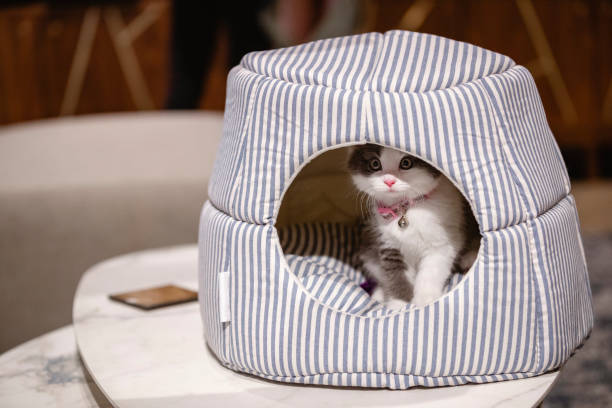The Dos and Do n'ts of Litter Box Upkeep
Wiki Article

Cats are precious companions in countless households worldwide, and part of the duty of feline ownership involves selecting the ideal litter and litter box that suits both the needs of our feline pals and our own. With a myriad of options available, browsing through the options can be overwhelming. This guide aims to streamline that procedure, supplying you with whatever you need to understand about cat litter, litter boxes, and systems.
The initial step in feline care is picking the right cat litter. Choices vary from clumping, non-clumping, silica gel, natural, and natural ranges. Clumping litter is popular for its ease of cleansing, while non-clumping litter is often less expensive and still reliable. Natural and natural litters supply eco-friendly choices but can differ in their absorbency and smell control abilities.
Modern feline owners can select from a range of litter box systems, consisting of automated and self-cleaning designs that use benefit and reduced upkeep. These systems can be a substantial investment but are worth considering for those with busy lifestyles.
Eco-conscious cat owners have several options, including biodegradable and flushable cat litters that minimize environmental impact. However, it is very important to stabilize benefit with ecological issues, as some flushable litters might not appropriate for all pipes systems.
Correct training is necessary, specifically for kittycats or felines transitioning to a brand-new type of litter or box. Consistency and persistence are essential. Regular cleaning and maintenance of the litter box are vital for the health and wellness of your feline, in addition to for odor control in your home.
The advantages and disadvantages of different types of cat litter are huge. Silica gel litter is extremely absorbent and lasting but can be more expensive. Natural litters, while safer for the environment, might not manage smells as efficiently as synthetic alternatives. Comprehending the particular needs of your feline and your choices for maintenance can help in making the finest option.
When selecting a litter box, consider the size, shape, and design that will finest fit your cat. Some felines choose open boxes, while others like the privacy of a covered box. Senior cats and kittycats might need boxes with lower sides for simple gain access to.
Odor control is a significant issue for numerous cat owners. Picking the best type of litter, routine cleaning, and making use of accessories like odor removers and litter mats can assist keep your home smelling cat litter alternatives fresh.
The health monitoring litters available today can notify owners to potential health concerns by changing color in action to changes in pH or the existence of blood. Furthermore, the environmental effect of cat litter is an essential factor to consider, with numerous owners selecting naturally degradable or recycled options.
Picking the best cat litter, litter box, and maintenance regimen is necessary for the health and happiness of your feline, in addition to for keeping a tidy and odor-free home. By considering the requirements of your feline and the practical elements of litter and litter box maintenance, you can develop cat litter robot a comfortable and sanitary environment for your furry good friend.
How frequently should I change my feline's litter? It depends on the kind of litter you're using and how many cats utilize the box. Clumping litter needs to be scooped daily, with the entire box altered every 2-4 weeks. Non-clumping litter typically requires more regular changes.
Are automated litter boxes cat litter box enclosure worth the investment? Picking the ideal cat litter, litter box, and maintenance routine is necessary for the health and happiness of your cat, along with for keeping a tidy and odor-free home. By thinking about the needs of your feline and the useful aspects of litter and litter box upkeep, you can develop a comfortable and hygienic environment for your furry good friend. For many, the convenience and lowered maintenance of automated litter boxes make them a beneficial financial investment. Nevertheless, some cats may be scared of them, so it's not a one-size-fits-all option.
Can diet affect litter box smell? Yes, a feline's diet plan can significantly impact the smell of their waste. Premium, quickly absorbable foods tend to produce less smelly waste.
By understanding the huge world of cat litter, litter boxes, and systems, you're well on your method to providing a clean, comfortable, and sustainable environment for your feline.
Picking the right cat litter, litter box, and maintenance routine is vital for the health and joy of your feline, as well as for keeping a clean and odor-free home. By considering the requirements of your feline and the useful elements of litter and litter box upkeep, you can develop a comfortable and hygienic environment for your furry buddy.